#Lingua Franca
Explore tagged Tumblr posts
Text
#polls#poll#daily polls#i love polls#polladay#languages#language#conlang#constructed language#linguistics#lingua franca#common tongue
47 notes
·
View notes
Text
Okay what language do you think people are speaking in Eleceed?
This maybe sounds like a dumb question but... especially in the World Academy arc, there's almost no Korean people there. And do we really assume that Kayden speaks Korean to Jiwoo? When it might make more sense that Jiwoo is multilingual and switches to uh, whatever Kayden speaks?
In other words, there's no way everyone in the whole comic was speaking Korean the whole time, right?
Although I do acknowledge the potential fact that Awakeners might have a language by themselves. Partially to keep normies from overhearing stuff but also to make communication easier. And there's the possibility that fictional languages exist in general, similar to how there may be fictional countries (one potential reason for why no other country is named except South Korea).
But even if the Awakener language exists, there's zero way Jiwoo would have known that at the beginning of the series. Kayden would have known and likely taught him later, but still. So obviously Kayden and Jiwoo share a language from the beginning, but it seems odd to assume that the language is specifically Korean. Especially when the writers specified that Kayden is not Korean (although he does look like some sort of East Asian. Y'all can pry him being Asian from my cold dead hands, by the way, I'll die as roast duck on this hill).
That aside, could we assume that everyone speaks Awakener language in the non-Korea arcs? Or maybe there's an actual global lingua franca in Eleceed world? In which case, of course anyone can pretty easily understand anyone else, unless they didn't get an education in the common language.
There could be evidence of a global lingua franca in chapter one. Kayden doesn't seem to acknowledge Jiwoo's words up until "Let me check", which is when Kayden replies. So he knows just enough Korean to understand that phrase, simply deduced what was going on from context, or Jiwoo was speaking a global lingua franca and Kayden ignored him until then. Or hell maybe Kayden just knows Korean, which isn't impossible.
Either way, I feel like the easy and simple answer is a global lingua franca, as people's first or secondary language(s). And maybe an Awakener language exists too, just because.
On that note, if there is an Awakener language, I wonder how it's spoken? Awakeners have different biology than normals. Potentially their language could literally be powered by their force core, which would make it genuinely incomprehensible to normals. Similar to Spatial Isolation that only other Awakeners can use and interact with. So I don't think it's a huge leap to say they could make a spoken language that only Awakeners could use and understand.
An Awakener sign language might be more difficult to make Awakener-only though. Since making force power modify your vocal cords (or at least the sound coming from said vocal cords) temporarily is different than full arm or hand modification. So I guess deaf Awakeners are screwed? Or maybe they've come up with signals instead, moreso like Morse Code using flashes of power.
At this point I'm rambling, there is almost certainly no thought towards deaf Awakeners in this comic when other shown disabilities are given little thought already lol. Although I do still think a spoken Awakener language could be real.
As for why I didn't mention English, I'm hesitant to say that Kayden and Jiwoo might have been speaking English to each other. Because although it's a very common language in real universe, there's really no confirmation in the comic that English exists at all. So I've stuck to mentioning only Korean, which presumably exists since South Korea exists, and mentioning unnamed but relevant languages like the global lingua franca or an Awakener language.
19 notes
·
View notes
Text

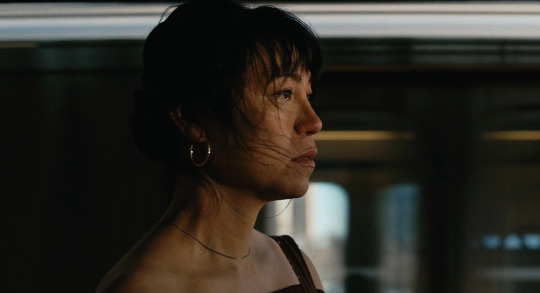
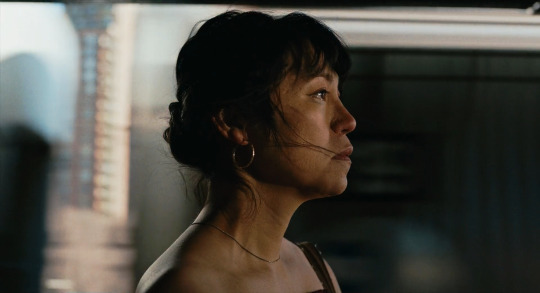
Lingua Franca (2019), dir. Isabel Sandoval
#lingua franca#isabel sandoval#film#film stills#filmedit#movies#movie stills#cinema#cinephile#cinematography#my posts
114 notes
·
View notes
Photo
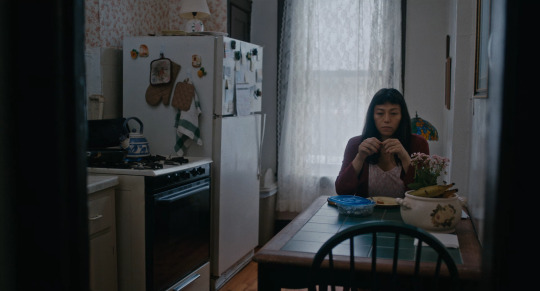

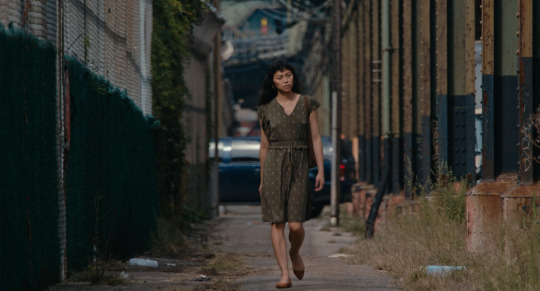


lingua franca (2019)
#lingua franca#film#movie#cinema#art#screencaps#edit#photography#cinematography#2010s#indie#female director#directed by women#isabel sandoval
198 notes
·
View notes
Text
Yet again, it's time to indulge in one of my favorite new year traditions: my ten favorite new-to-me films of 2023!
This is a wild, wild group of movies, but all of them got under my skin in one way or another and made this year that much brighter. If you like, consider this a strong endorsement for each of them.
Same rules as always: no movies from this past year (2023) or the year prior (2022). Every other year is fair game.
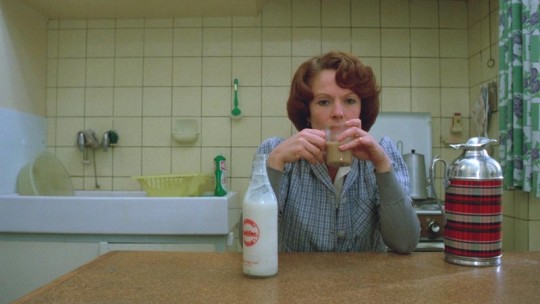
01. Jeanne Dielman, 23 Quai du Commerce, 1080 Bruxelles (dir. Chantal Akerman, 1975; Belgium/France; 202 mins.)
"I often cry when I think of you, Jeanne."
Sight & Sound's newly crowned Greatest Fim of All-Time was one of my first viewing experiences of 2023, and it loomed like a cloud over the rest of my moviegoing year. It was a bit of an ideal viewing experience - my favorite local independent theater had a showing, and the sizable audience was utterly enthralled by it. The massive Jeanne Dielman is a masterpiece in observation and behavior, and its power reveals itself through the way Akerman creates and unravels Jeanne's routine. She turns the lights off in every room she leaves. She replaces the lid of the money jar every single time. She watches her neighbor's baby for a little while in the afternoon. She looks presentable and pristine at all times, including after her sex work. When parts of these routines start shifting - the lid being left off the jar, the lights being left on for a bit too long, tousled hair - it plays like a jump scare.
I was shocked at how quickly this flew by. By the time the first day ended, I glanced at the time out of curiosity and was surprised to see it had already been an hour. Jeanne Dielman is a film that is frequently called "boring," which is both fair and entirely the point. It's still utterly mesmerizing within that boredom. This is thanks in large part to Delphine Seyrig's performance. With her hypernaturalistic stillness, Seyrig reaches rare levels of unaffected authenticity. Jeanne doesn't really feel like a character at all -- even with as little as we truly know about her, she feels like a human being.
Essential viewing. Long live the queen.
Currently streaming on the Criterion Channel and Max.

02. The Ascent (dir. Larisa Shepitko, 1977; Soviet Union; 111 mins.)
"Thanks for not leaving me. With company, it's... Okay, let's move on."
My final film in my 52 Films by Women challenge from a few years ago (shut up), Larisa Shepitko's The Ascent must be one of the greatest war movies ever made. Admittedly, it's not a genre I'm often drawn to, but Shepitko instills this film with an emotional power that becomes almost too much to bear.
Every act of cruelty, every gun fired, every open wound, is accompanied by a visceral pain. The way Shepitko uses the natural world as a stage for this story is astonishing - the vast snowy expanse of an unforgiving Russian winter, the rows of trees. Each of her actors manages to convey so much with their faces, too, especially the devastatingly good Lyudmila Polyakova, but the heart of the film is in the work of the two leads. Boris Plotnikov and Vladimir Gostyukhin work beautifully as a pair and as individuals. Shepitko masterfully traces the arc of their relationship against the backdrop of the war, and the end result is absolutely shattering.
The Ascent was, tragically, Shepitko's final film before she died in a car accident. It was my introduction to her as a filmmaker. I hope I can catch up with some of her earlier work, but The Ascent on its own is proof that she was a generational talent.
Currently streaming on the Criterion Channel.
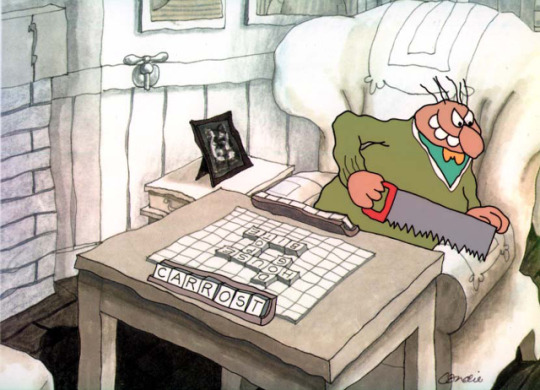
03. The Big Snit (dir. Richard Condie, 1985; Canada; 10 mins.)
"And stop sawing the table!!!"
Oh my God, I loved this so much? Other than being vaguely aware of the title and its good reputation, I had no expectations going into The Big Snit, but everything about it worked for me. The utterly bizarre sense of humor, the voice acting (especially the CAT?!), and Condie's deft combination of a marriage gone stale against the backdrop of nuclear anxiety make for a surprisingly moving ending. I think it might be a masterpiece of the form. And like Jeanne Dielman, it feels profoundly influential - it's easy to see the aftershocks of The Big Snit in a decade's worth of shows on Nickelodeon and Cartoon Network.
Currently streaming on the National Film Board of Canada's website.

04. Vagabond (dir. Agnès Varda, 1985; France; 105 mins.)
"I know little about her myself, but it seems to me she came from the sea."
There really was nobody like Agnès Varda. Vagabond, or Sans toit ni loi, if you prefer its evocative original title, is pretty handily the most emotionally devastating film of hers that I've seen. As Varda shows us Mona's journey through the French countryside, it's hard not to see shades of Wendy and Lucy or even Nomadland. Like the protagonists of those films, Mona struggles to keep her head above water while living on the margins of society, and, like Reichardt and Zhao, Varda manages to find the joyful, the beautiful, and the life-affirming underneath the hardship. She also coaxes stunning work out of Sandrine Bonnaire, who turns in an extraordinarily unaffected and naturalistic performance.
Vagabond's secret weapon might be in its structure. Marrying traditional narrative scenes with a documentary-like direct address, Varda creates an achingly realistic atmosphere. Her work as a documentarian is well-known, and as a bridge between narrative and documentary filmmaking, Vagabond may just be the crown jewel in Varda's expansive body of work.
Currently streaming on the Criterion Channel.
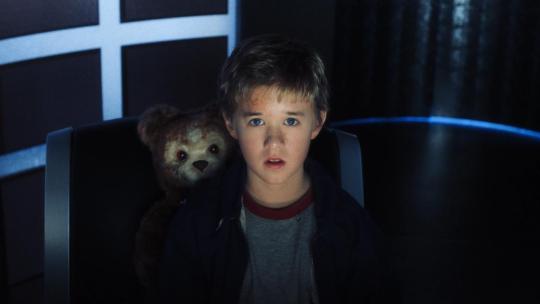
05. A.I. Artificial Intelligence (dir. Steven Spielberg, 2001; USA; 146 mins.)
"And for the first time in his life, he went to that place where dreams are born."
Weepy existential sci-fi remains undefeated!
A.I. Artificial Intelligence is undeniably a huge swing. Genuinely feeling like that impossible mix between Spielberg's and Kubrick's sensibilities, A.I. achieves something of a hat trick - a fairytale steeped in existentialism. The Pinocchio comparisons are immediate and on-the-nose, but that doesn't make it any less fertile grounds for a compelling story. There's so much in this film that physically hurts the heart and the head to think about for too long - so much grief, so much cruelty - that framing it around David's immediately accessible journey toward becoming a real boy is pretty ingenious.
Of course, this film, maybe more than any of Spielberg's others, is deeply reliant on its lead performance. Haley Joel Osment is astonishing in this film, a blank slate for an entire world's love and anguish to project itself. Without him, the film would probably still be a fascinating sci-fi epic, but Osment lends the film the bulk of its emotional power. If we don't believe that David's entire reason for being comes from his need for love from his adopted mother (which, admittedly, is a pretty thin clothesline for the film's heavy plot to hang on), then we don't care. Osment makes us care. From anybody, this performance would be a triumph, but from a 12-year-old? It might be one of the miracles of acting.
Available to rent on demand.
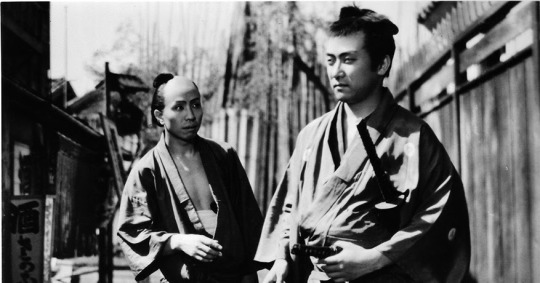
06. Humanity and Paper Balloons (dir. Sadao Yamanaka, 1937; Japan; 86 mins.)
"How could he kill himself on such a nice day? How utterly selfish of him."
Up until watching this film, I don't think I ever paid any special attention to Sadao Yamanaka's name. Within a year of the release of Humanity and Paper Balloons, the 28-year-old Yamanaka would be dead.
His untimely death only hints at the kinds of films he could have made with more time. This, though, is surely one of the finest (and most depressing) final films I can think of. One of the great strengths of Humanity and Paper Balloons is how startlingly modern it all feels: it's a 1930s drama, yes, but Yamanaka's thoughtful, assured direction really brings the poetic and tragic script (written beautifully by Shintaro Mimura) and performances (especially Kanemon Nakamura as Shinza the hairdresser) to life. Like the best tragedies, the events of Humanity and Paper Balloons feel senselessly cruel and brutally inevitable, but unlike other tragedies, Yamanaka is careful to keep just a bit of disarming humor to prevent the film from feeling too heavy.
It's an incredibly sad story beautifully told by a filmmaker struck down in his prime. Extremely worth a watch.
Currently streaming on the Criterion Channel.

07. Mississippi Masala (dir. Mira Nair, 1991; USA; 118 mins.)
"Home is where the heart is. And my heart is with you."
There is so much in Mississippi Masala that's wonderful. There's the beautiful young couple at the center, Sarita Choudhury (in a lovely debut performance) and Denzel Washington (a few years after his first Oscar win), who are so hot together that it feels like the TV might catch on fire. There's the supporting cast, too, including the legendary Sharmila Tagore, the great Charles S. Dutton, and the soulful Roshan Seth, whose sad, exhausted face is the heart of the film. There's the sensitive script by Sooni Taraporevala, that somehow finds an intimate romantic drama in a sprawling story that includes the Indian exodus from Uganda, an immigrant family's assimilation into the American South, and two clearly defined family dramas in vastly marginalized communities.
Perhaps most wonderful is Nair's gorgeous direction. The film has an expressive, vibrant visual palette, with so many different shades of red accompanying Mina and Demetrius' blooming romance. This is a rich, sensual film, and one of the great romantic dramas of the 90s.
Currently streaming on the Criterion Channel.
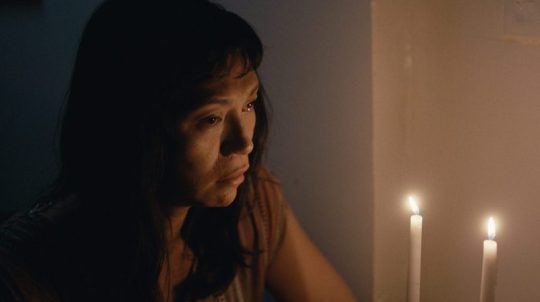
08. Lingua Franca (dir. Isabel Sandoval, 2019; Philippines/USA; 95 mins.)
"It doesn't matter where I go. They will hunt me down, and take me away."
Speaking of sensual! Sandoval, a true multi-hyphenate, is the director, writer, and lead performer in the stunning Lingua Franca.
The story, following an undocumented trans Filipina caregiver, is urgent, unabashedly political, and deeply moving. Sandoval and Eamon Farren both turn in deeply affecting performances, evocatively painting portraits of bruised souls trying desperately to find a way forward. The beauty in Sandoval's direction shows us that a way forward is within their grasp. It's the choices they need to make in striving for a better life that drive them further apart. The much-discussed sex scene is one of the most sensual and breathtaking in recent memory, but so much of the central romance is painted with such empathy and grace and beautiful visuals that it makes the unraveling feel all the more gutting. Also gutting is Lynn Cohen's quietly perfect performance.
Lingua Franca is not Sandoval's directorial debut, but it does feel like the arrival of a major artist. She's clearly one of the most exciting filmmakers working today.
Currently streaming on the Criterion Channel.

09. The Blue Angel (dir. Josef von Sternberg, 1930; Weimar Republic; 108 mins.)
"Men swarm around me like moths 'round a flame, And if their wings are singed, surely I can't be blamed."
It's easy to see The Blue Angel as a collision between the expressionism and full-body physicality of silent cinema (embodied in Emil Jannings' performance) and the daring, tempting new-age sound cinema (embodied, of course, by the iconic Marlene Dietrich), but that almost devalues the skill of the actual storytelling and filmmaking going on here. Jannings' relationship with Dietrich - as naive and one-sided as it may sometimes be - is inevitable and pitiful. It's ridiculous and tragic to watch as he throws his entire life away for the most fleeting, meaningless romance imaginable.
Both lead performers are superb, of course. Dietrich, iconic across all of her Sternberg collaborations, is exquisite both in her onstage burlesque performances and her more intimate scenes with Jannings. Their chemistry is really lovely, even as we know it can never last. Jannings is tremendous, a layered and honest performance that culminates in an emotional breakdown that feels almost ripped from a Universal monster movie. The animalistic noises of his anguish are utterly haunting. Brutal stuff, and pretty handily my favorite Sternberg film.
Available to rent on demand.

10. Time Piece (dir. Jim Henson, 1965; USA; 9 mins.)
"Help!"
Why yes, that is the head of a young Jim Henson on that plate!
It's so weird seeing a Henson film without puppets, but if Time Piece is anything, it's weird. It's also brilliant - the product of Henson's singular creative voice. At just nine minutes, the short is a striking, funny, strange meditation on what it means to be beholden to the relentless march of time. It also boasts impeccable sound design and music, courtesy of the late, great Don Sebesky.
Currently available on Vimeo.
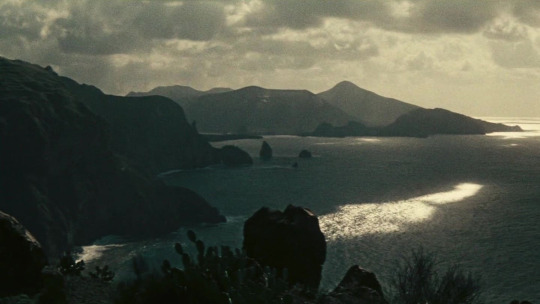
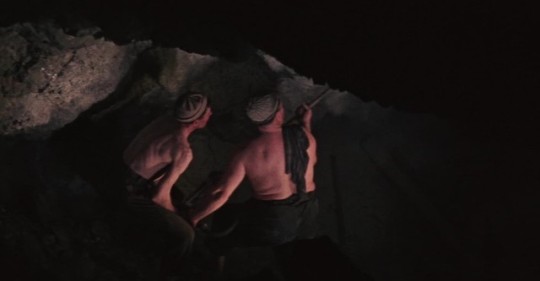
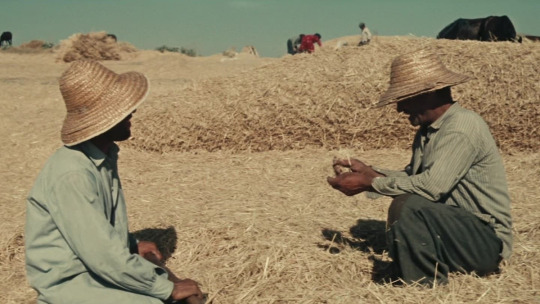
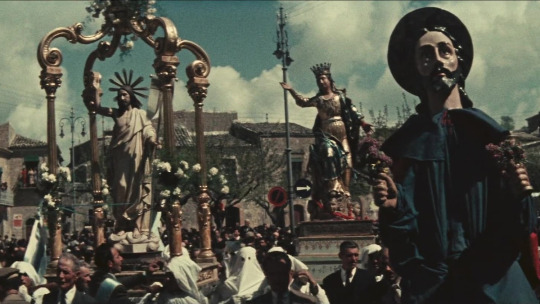
Special mention: Vittorio De Seta's 1955 documentaries.
In 1955, De Seta released six(!) documentary shorts: Islands of Fire, Surfarara, Easter in Sicily, The Age of Swordfish, Sea Countrymen, and Golden Parable. Stunning as individual films, but taken as a group, they become a meditation on the violence of living off the land and the endless cycle of life and death. Acting as director, editor, and cinematographer, De Seta marries ethnography and anthropology with artistry, creating bite-sized, miraculous films that immortalize life and labor in rural Sicily. The cinematography alone is jaw-dropping. Whether the films chronicle the Stromboli volcano, ancient religious rituals, a day of work in sulfur mines, harvesting grain, or the life of a fisherman, they are immersive and fleeting. The longest of these films is 12 minutes, and they all feel like dreams. Stunning stuff.
All six of these films, and more of De Seta's work, are streaming on the Criterion Channel.

Honorable mentions (in alphabetical order): After Yang (dir. Kogonada, 2021); Akira (dir. Katsuhiro Otomo, 1988); Asako I & II (dir. Ryusuke Hamaguchi, 2018); Beverly Hills Cop (dir. Martin Brest, 1984); The Boy Friend (dir. Ken Russell, 1971); Carnal Knowledge (dir. Mike Nichols, 1971); Dogfight (dir. Nancy Savoca, 1991); Game Night (dir. John Francis Daley and Jonathan Goldstein, 2018); Girlhood (dir. Céline Sciamma, 2014); The Great Piggy Bank Robbery (dir. Robert Clampett, 1946); Heat (dir. Michael Mann, 1995); Italianamerican (dir. Martin Scorsese, 1974); Kajillionaire (dir. Miranda July, 2020); Linda Linda Linda (dir. Nobuhiro Yamashita, 2005); Mean Streets (dir. Martin Scorsese, 1973); Night of the Living Dead (dir. George A. Romero, 1968); Pink Flamingos (dir. John Waters, 1972) Saving Face (dir. Alice Wu, 2004); Shake! Otis at Monterey (dir. D. A. Pennebaker, Chris Hegedus, and David Dawkins, 1987); Shiva Baby (dir. Emma Seligman, 2020); Three Thousand (dir. asinnajaq, 2017); Videodrome (dir. David Cronenberg, 1983); When the Day Breaks (Amanda Forbis and Wendy Tilby, 1999); While You Were Sleeping (dir. Jon Turteltaub, 1995); Windy Day (dir. John Hubley and Faith Hubley, 1968); Wings of Desire (dir. Wim Wenders, 1987); Your Face (dir. Bill Plympton, 1987)
And finally, some miscellaneous viewing stats:
First movie watched in 2023: Akira (dir. Katsuhiro Otomo, 1988)
Final movie watched in 2023: The Devil Wears Prada (dir. David Frankel, 2006)
Least favorite movie: Blonde (dir. Andrew Dominik, 2022)
Oldest movie: The Impossible Voyage (dir. Georges Méliès, 1904)
Longest movie: The Ten Commandments (dir. Cecil B. DeMille, 1956 - 220 mins.)
Shortest movie: Premonitions Following an Evil Deed (dir. David Lynch, 1995 - 1 min.)
Month with the most viewings: January (35)
Month with the fewest viewings: May (5)
First movie from 2023 seen: Rye Lane (dir. Raine Allen-Miller, 2023)
Total movies: 231
Movies! They're good. Sometimes. Happy new year, friends!
#this is not an ad for the criterion channel i promise#jeanne dielman 23 quai du commerce 1080 bruxelles#chantal akerman#the ascent#larisa shepitko#the big snit#richard condie#vagabond#agnès varda#a.i. artificial intelligence#steven spielberg#humanity and paper balloons#sadao yamanaka#mississippi masala#mira nair#lingua franca#isabel sandoval#the blue angel#josef von sternberg#time piece#jim henson#vittorio de seta#islands of fire#surfarara#golden parable#easter in sicily#the age of swordfish#sea countrymen#sometimes elliott watches movies#year in review
34 notes
·
View notes
Text
Today I had a crappy day today and when I see this it really cheers me up.
Thank you @inators for making them so beautiful 🥺✨.


11 notes
·
View notes
Text
Recently Viewed: Lingua Franca
[The following review contains MAJOR SPOILERS; YOU HAVE BEEN WARNED!]

Near the conclusion of Isabel Sandoval’s quietly beautiful Lingua Franca, there is an utterly gut-wrenching scene in which the two protagonists essentially inhabit completely separate movies. As they slow dance in a dive bar—bathed, of course, in moody red light—recovering alcoholic Alex (Eamon Farren, personifying bruised masculinity) offers to marry Olivia, his grandmother’s live-in caretaker (portrayed by Sandoval herself). Although the proposal is primarily pragmatic—Olivia is an illegal immigrant, and desperately needs a green card to avoid deportation—it is also motivated by genuine love and affection. Overwhelmed by the seemingly selfless gesture, Olivia attempts to come clean about a secret that she has been keeping—one that she fears will irrevocably alter how Alex perceives her. In an effort to assuage her misplaced guilt, Alex insists that he'll stand by her no matter what; in the process of expressing this superficially noble sentiment, however, he inadvertently exposes his own deception—a far more terrible act of manipulation and exploitation that recontextualizes the couple's entire relationship. As he continues to sway to the music—totally oblivious to his verbal mishap—his eyes remain closed, basking in the ignorant bliss of romance; hers, on the other hand, are wide with horror—clearly conveying the feelings of anguish, betrayal, and violation that she is experiencing.
As far as climaxes go, it’s subtle—but that restraint hardly diminishes the moment's emotional impact. Lingua Franca is the perfect example of substance as style. Like the exquisite works of Chantal Akerman, the film is epic and intimate in equal measure: its visuals are spectacularly spare, its performances seductively naturalistic, its conflicts and characters captivatingly mundane. It is, in short, absolutely sublime—a patient, understated masterpiece that is thematically rich beyond compare, insightfully deconstructing the human condition, the gender binary, and the ever-elusive American Dream.
7 notes
·
View notes
Text
Oliver the 2nd & Cohen Beats - Let Me Explain (ft. Pink Siifu)
8 notes
·
View notes
Text
Lingua franca 2: Indonesian










Indonesian has been the official language of Indonesia since 1945, an archipelago of 18,000 islands and over 700 languages!
It is a Malay language part of the Austronesian family (Hawaïan, Maori…), and is spoken as a native language by (only) 20% of the population!
The rest learn it at school in addition to their native language, whether it is Chinese, Javanese or Land Dayak (of one of the native/indigenous groups of Indonesia)
Some see Indonesian as the most successful lingua franca by permitting intercommunication without oppressing minority languages/cultures (very different from the West!)
Indonesian is also deemed by many linguists as ‘easy’ due to having no declension and little to no conjugation as English or Mandarin Chinese, which is a common feature of lingua francas
An interesting feature is how the plural is formed in Bahasa Indonesia (the Indonesian language), that is with reduplication > For example, “buku” (book) becomes “buku-buku” (books)
>Sources:
-Martono, Dewantara J.A., & Efriani, Prasetiyo W.H. (2022). The national identity on the border: Indonesian language awareness and attitudes through multi-ethnic community involvement. J Community Psychol, 50, 111–125. https://doi.org/10.1002/jcop.22505
-Ridwan, M. (2018). National and Official Language: The Long Journey of Indonesian Language. Budapest International Research and Critics Institute-Journal (BIRCI-Journal), 1(2), 72-78, https://doi.org/10.33258/birci.v1i2.14
-Sudaryanto, M., & Rahayu, E. T. (2021). The Indonesian grammar test: What foreigners need to know. Psychology and Education, 58(2), 4391-4402. https://doi.org/10.17762/pae.v58i2.2828
.
4 notes
·
View notes
Text









Lingua Franca (Isabel Sandoval, 2019)
Cast: Isabel Sandoval, Eamon Farren, Lynn Cohen, Lev Gorn, Ivory Aquino, P.J. Boudousqué, Shiloh Verrico, Ari Barkan. Screenplay: Isabel Sandoval. Cinematography: Isaac Banks. Production design: Maxwell Nalevansky, Clint Ramos. Film editing: Isabel Sandoval. Music: Teresa Barrozo.
14 notes
·
View notes
Text
14 notes
·
View notes
Text

Fia Pawlinska - Lingua Franca Fall 2025 Ready to Wear, New York
source: wwd.com
3 notes
·
View notes
Text
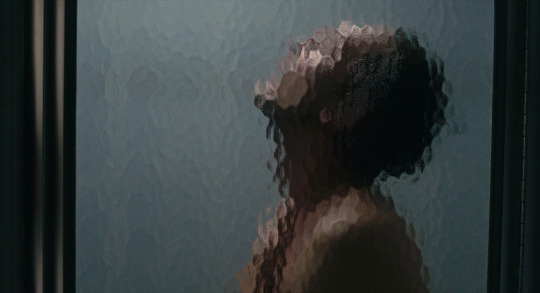
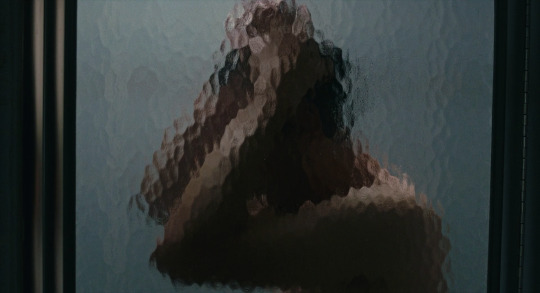
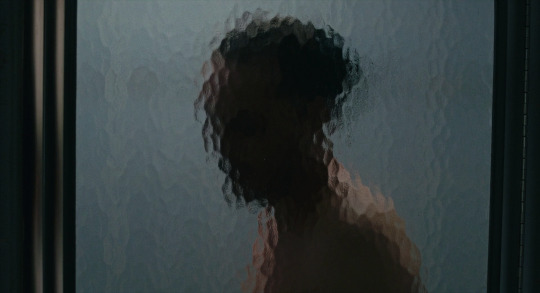
Lingua Franca (2019), dir. Isabel Sandoval
#lingua franca#isabel sandoval#eamon farren#film#film stills#filmedit#movies#movie stills#cinema#cinephile#cinematography#my posts
105 notes
·
View notes
Text
[big spoilers] The way that Lingua Franca shows how differently Alex and Olivia navigate the world up until their final confrontation is so good and thoughtful—he can fuck up, go to jail, lose a job, and still have the safety net of a family to bail him out and offer him a place to stay and a career, while she keeps her head down and works and sends money to her family in the Philippines and fears every day that she’ll be rounded up by ICE because she doesn’t have the right papers, how she lives in constant fear of this panopticon of surveillance and stories of other undocumented immigrants on the news reflecting her worst nightmare. How Alex tells her that everything will be okay because she’s with him, but his privileges—as a cishet white man, as a citizen, as someone whose family provides for him instead of providing for them—make it so he might love her, but he can’t understand her. When the moment in the bar comes where he accidentally reveals he has her passport and you see him oblivious to her devastation it hits so well because the film has been thoughtfully working it’s way up to this moment where you realize this film is not a romance, really, and will not end with a happily-ever-after for these two. Just a very thoughtful and subtle and well-written movie.
4 notes
·
View notes
Text
If anyone at all is looking for a fantastic bit of queer media to watch this pride month (yes i am aware that it's nearly over but ive only just watched them myself) then please please check out:
Lingua Franca (2019) dir: Isabel Sandoval. The story of an undocumented Filipino trans woman living as a live in carer in New York
And
Carlotta (2014) dir: Samantha Lang. A film based on the life of an Australian trans icon and her friends and how they went from working class boys to household names. -A quick warning though this film is dark in places so please be cautious-
Both are centered around the trans experience, and I found both through looking at the work of actor Eamon Farren, and both are fantastic films that I wish were more well known.
#Carlotta (2014)#lingua franca#queer cinema#transgender#trans experience#Isobel Sandoval#Samantha Lang#eamon farren#pride month#lgbt#lgbtqia#trans pride
8 notes
·
View notes
Text
Surely THIS time the new international auxiliary language will resonate with the masses and be adopted worldwide, not like the last one
#esperanto#interlingua#Interlingue#Ido#volapük#occidental#novial#Kotava#Lingua franca#lingua Franca nova#Slovio#Interslavic#Pandunia#Lingwa de planeta#Globasa#Folkspraak
20 notes
·
View notes